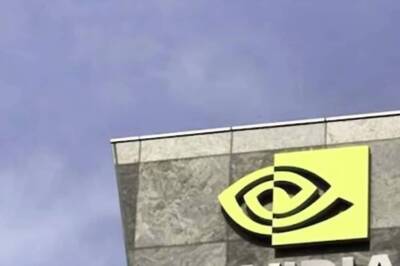
views
Bank FD Vs G-Secs, T-Bills: As the Reserve Bank of India (RBI) has been hiking interest rates for the past few months to control inflation in the country, banks are also raising their interest rates on both deposits and loans. Recently, several lenders have revised upwards their FD rates — some have raised second time within a month. The hikes have made FD deposits attractive as against earlier. However, are bank FDs offering more returns than government bonds including G-Secs, T-bills, etc? Details here:
“At current rates, T-bills & G-secs are much better than a bank FD. Most people still don’t know that you can easily buy T-bills & G-Secs on exchanges/your trading a/c without CSGL etc,” said Nithin Kamath, founder and CEO of online brokerage Zerodha.
At current rates, T-bills & G-secs are much better than a bank FD.Most people still don’t know that you can easily buy T-bills & G-Secs on exchanges/your trading a/c without CSGL etc.
Btw, they’re open for investing every Monday on @CoinByZerodha https://t.co/iJolUvPBFU pic.twitter.com/rpBWIs1pOE
— Nithin Kamath (@Nithin0dha) November 7, 2022
Data shared by Kamath showed that on a deposit tenure of 91 days, T-Bills are offering an interest rate of 6.47 per cent, which is much higher than the returns being offered by major commercial banks. HDFC Bank, SBI, ICICI Bank, Axis Bank, PNB and IDFC Bank are offering a fixed interest rate of 4.50 per cent on FD duration of 91 days.
On deposits for 182 days, T-Bills are offering a 6.80 per cent returns, which is higher IDFC’s 5.75 per cent, PNB’s 5.50 per cent, Axis Bank’s 5.25 per cent, ICICI Bank’s 5.25 per cent, SBI’s 5.25 per cent and HDFC Bank’s 5.25 per cent.
For an FD duration of 364 days, T-Bills are offering an interest rate of 6.95 per cent, which is higher than the 5.75 per cent being offered by IDFC Bank and the 5.5 per cent each by PNB, Axis Bank, ICICI Bank, SBI and HDFC Bank.
Bank FD Vs Government Bonds
Government Securities (G-Secs) are guaranteed by the Government of India, unlike other fixed income products like bank FDs and debt funds that carry a credit risk. G-Secs with the maturity of less than 1 year are called T-Bills (treasury bills) and those greater than 1 year are called bonds.
Fixed deposits have a maximum tenure of 10 years, while government bonds offers attractive returns on lock-ins up to 40 years
On government securities, there is no TDS (income tax deduction at source) like bank FD. A person can pay taxes as per his/ her income tax slab at the end of the financial year.
Interest Rate Hike Cycle
The RBI has raised 190 basis points since May this year. In May, the central conducted its off-cycle monetary policy review to hike the repo rate to control inflation. It had hiked 40 basis points in the review.
India’s retail inflation accelerated to a five-month high of 7.41 per cent in September. It was the ninth month that the Consumer Price Index (CPI)-based inflation has remained above the RBI’s upper tolerance limit of 6 per cent, and has risen despite the central bank’s efforts to curb it. The retail inflation had stood at 7.04 per cent in May, 7.01 per cent in June, 6.71 per cent in July, 7 per cent in August and now 7.41 per cent in September.
The RBI’s Monetary Policy Committee last week (November 4) meet under Section 45ZN of the RBI Act, 1934 (which deals with failure to maintain the inflation target). The meeting was to discuss and draft a report for the government on why the central bank has failed to keep retail inflation below the target of 6 per cent for three consecutive quarters since January this year.
Read all the Latest Business News here



















Comments
0 comment